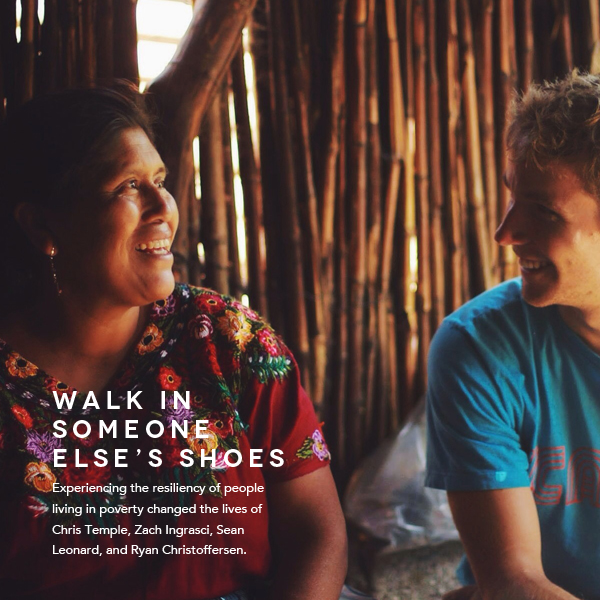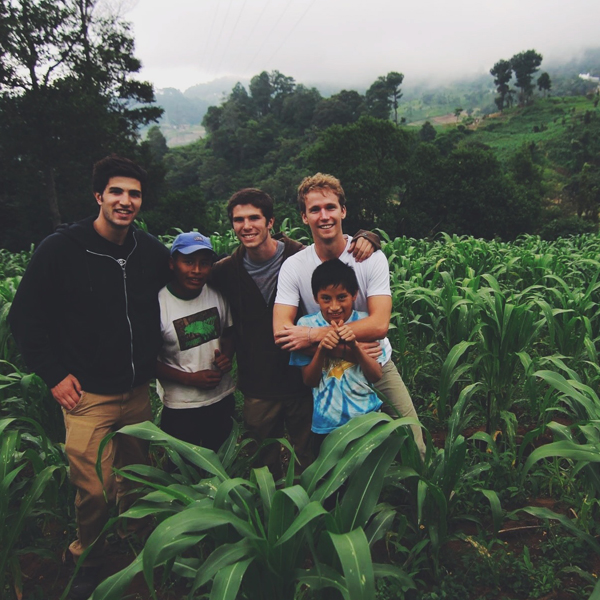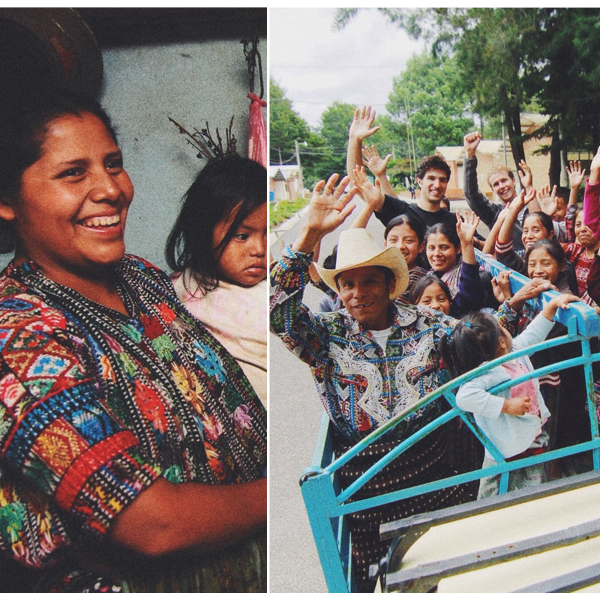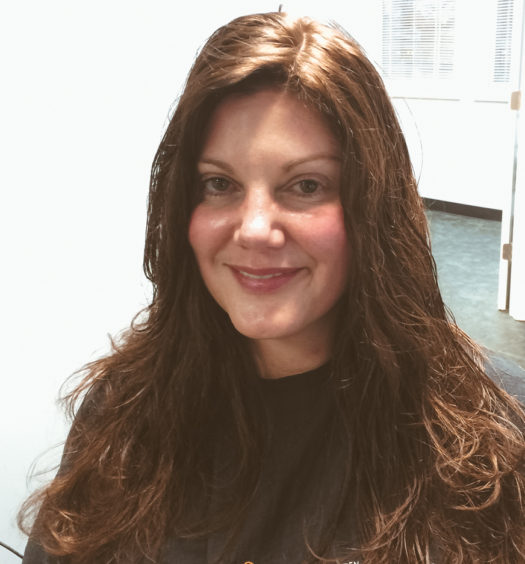Living On One Dollar: Four Students Fight Against Global Poverty

Sometimes all we need is to get away and gain a bit of perspective, whether it is to your old tree house in your back yard, your favorite coffee nook downtown, or a completely different country. Taking a moment to recognize the elements of life and how blessed you are can bring infectious happiness and gratitude, so share this pleasure by immersing yourself in the lives of others and trying to see the world from their point of view. That’s what four students from Claremont McKenna College did – they traveled to Pena Blanca, Guatemala to get a true perspective of extreme poverty and engage with the people living in this village who struggle to survive on $1 per day. Experiencing the resiliency of people living in poverty changed the lives of Chris Temple, Zach Ingrasci, Sean Leonard and Ryan Christoffersen by grounding them from our materialistic, over-consuming reality and allowing them to learn about the everyday hardships that people must face simply just to survive another day. Now, these four men hope to change the lives of the 1.1 billion impoverished people who live on $1 a day by raising awareness, fostering inspiration and encouraging action.
Chris and Zach were kind enough to answer a few questions about the process that led to the creation of their newly released documentary ‘Into Poverty: Living On One Dollar’, which details their travels to Pena Blanca, their experiences of living on $1 per day for eight weeks, the issue of global poverty and how you can help.
Q | How did you come up with the idea for the trip and actually make it a reality? We were studying economics and international development in school, but the issues we were reading about seemed so far from our daily reality. We constantly heard the overwhelming statistic that 1.1 billion people live under $1 a day, but growing up in Connecticut and Seattle, had little ability to understand the reality of life at that level. So we came up with the concept to live under $1 a day for two months ourselves. We knew that we’d never be able to truly replicate poverty but we did believe that this would be a valuable experience.
Having an idea and making it a reality are two very different things. We developed the idea over a 10 month period and applied for funding from 9 different sources but got rejected from all of them. We had no track record of making films and the project was different and potentially dangerous – making it difficult for someone to fund. Finally about a month before leaving, we got $4,000 from the Whole Planet Foundation, which was enough for our plane tickets and $1 a day each while there. Actually going was a difficult decision to make though. My family wasn’t particularly supportive and there was a lot of pressure to get a traditional internship with a consulting firm or investment bank.
Q | How did you prepare yourselves for a trip that is so different from the reality that you are used to? Looking back, we were horribly unprepared for the trip, both physically and emotionally. But I’m not sure how we could prepare for what the following few months were going to bring. It may have been to our advantage that we didn’t have much time to think about the trip right before going because we were so busy with end of the year exams at school.

Q | Why did you choose Pena Blanca for this experience? We chose Guatemala because I (Chris) had been lucky enough to travel there a few years before and had fallen in love with the culture and people, especially the rural areas. When we thought of the idea for the documentary, we were studying economics in school, and were shocked to learn that in Guatemala almost 50% of the population lives in poverty and in rural areas 75% of the indigenous population lives in poverty. This was representative of rural poverty in many parts of the world, and an unimaginable problem that we wanted to learn more about.
We chose Pena Blanca specifically because we knew people at a nearby non-profit who had been to the community before, knew the average income, and knew that it was a safe community.
Q | At any point in the trip did you want to give up? How did you persevere through the tough times? I (Zach) remember one morning when I woke up on our dirt floor after being bitten by fleas all night. I didn’t know if we were going to have enough money for food that day let alone medicine for a parasite that Chris had just contracted from contaminated drinking water.
The discomfort of the dirt floor and fleas was definitely challenging but it was the stress of having a small, irregular income and not knowing what illness or disaster was going to hit us next that was really the hardest part.
These challenges made us realize just how innovative and strong the poor have to be to even survive. Seeing our neighbors strive to improve their lives, in the face of such hardship, inspired us to stay the 56 days and do everything we can to give back. We really built life-long friendships with them – friendships that transcend just this film – which is the most rewarding part. They inspired us to create this film that would inspire action through hope, not through guilt.
Q | Did you ever feel guilty knowing that you would return home in a few weeks to electricity, running water, an actual bed, etc.? How did you deal with those feelings? The hardest part about the whole trip was leaving and knowing that our neighbors faced an unpredictable and extremely challenging future. I think a lot of people feel this sense of guilt when they come back from abroad, and they hide from those feelings instead of facing them. It seems like such a shame that we travel and build these amazing relationships and then never follow up again or keep in touch. What has been so lucky about this project is that we’ve been able to go back 3 times to Pena Blanca over the past few years and speak monthly on the phone with Chino, Anthony and Rosa. We’re even friends with Rosa on Facebook!
Technology allows us to stay connected around the world and continue to learn from one another and be there for one another in times of need.
Q | What is your advice for other college students who want to go on a service trip or get active about a topic they are passionate about? I would encourage everybody to walk in somebody else’s shoes, if only for a few days. Through the experience, you’ll gain empathy for someone else’s reality and never judge, disregard, or ignore a person like them in the future. For me (Chris), I will never see a hotel janitor in the same light. Anthony, one of our neighbors, was one of the most generous and intelligent people I’ve ever met, yet he cleaned hotel rooms for a living. This might not be considered the most accomplished job to some, but his formal job and steady paycheck were the envy of the entire town.
There are so many ways for someone to make a difference in the world. It doesn’t have to be an international service trip, it could be mentoring a low-income student nearby or an environmental project. What’s important is that you give something, your time, your money, or your skills. These actions will help you find your inspiration and lead you down a path you would have never expected. I was going to intern for an investment bank for the summer, but instead went to Guatemala, and my whole life path was changed.

Q | Overall, what have you learned from these experiences and how have they changed your life and outlook? If there’s one thing I walked away with from Guatemala, it’s that small things can have a huge effect on the lives of the extreme poor. By understanding this, we can feel empowered that change is possible.
For billions of the poor it is not a choice to live with less. What is most troubling is not that they live with less material things but that they live with less opportunity to improve their lives. They often don’t have access to things we take advantage of everyday like education, financial services, nutrition, healthcare and even access to clean water. For those who have these resources it is our responsibility to join together and make a difference in the world.
One of our closest friends in Peña Blanca is Rosa, a 21-year-old woman, who has this dream of becoming a nurse. Sadly, in the 6th grade, she was forced to drop out of school because her father got sick. Years later, with the help of a microfinance loan of only $200, she was able to start her own weaving business and with the profits, begin paying for herself to go back to school and keep her dream alive. Rosa is one of the smartest, most motivated people we have ever met, all that she lacked was an opportunity to improve her own life.
Learn, Connect, Act
Learn more about Living On One
Connect via Facebook and Twitter
- Spread the word. Our film just released for anyone to download it on our website or iTunes.
- Give a Donation. You can support education, clean water, or microfinance for the community of Pena Blanca by giving to one of our impact partners here: www.LivingonOne.org/changeseries
- Buy Shirts or Sandals. Our shirts are handmade by the star of our film, Rosa, and help pay for her education. The sandals support the health and education of Guatemalan children like Chino.
- Contact High School teachers and tell them to show the film and/or bring us to speak so we can create a generation of active global citizens.
From the Editor
At Conscious, we are inspired by remarkable people, and so we set out to tell stories that highlight real human interactions and human dignity. You can read more stories like this when you pick up your copy of Conscious Magazine. Subscribe today via our Conscious Shop and sign-up for Conscious Updates.
Photo credit: Sean Leonard (photo #3)
Photos provided by Living On One


